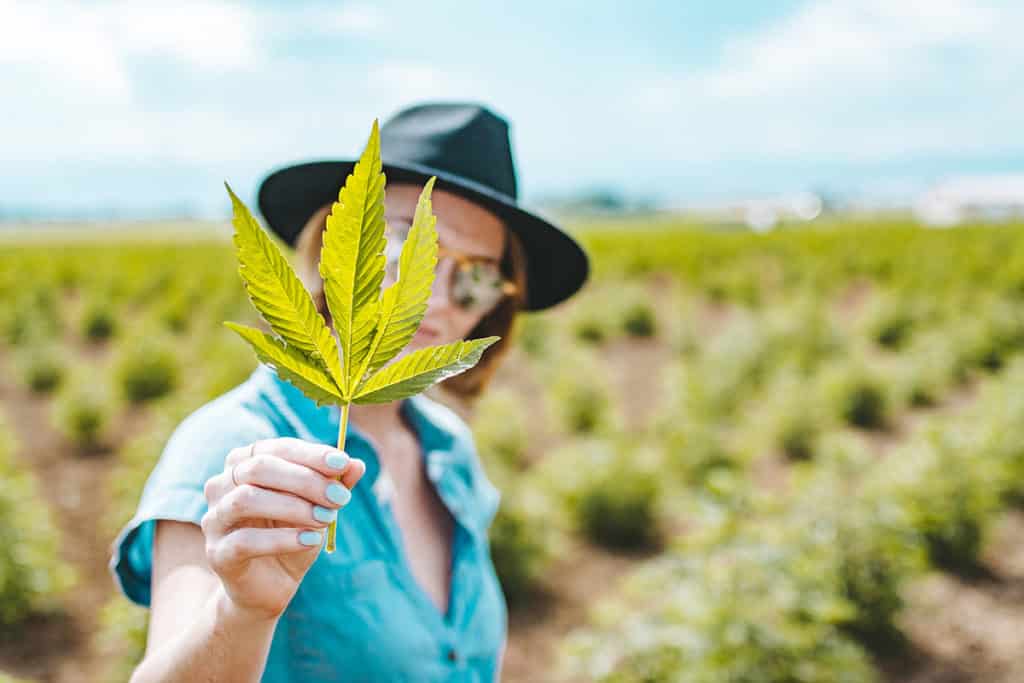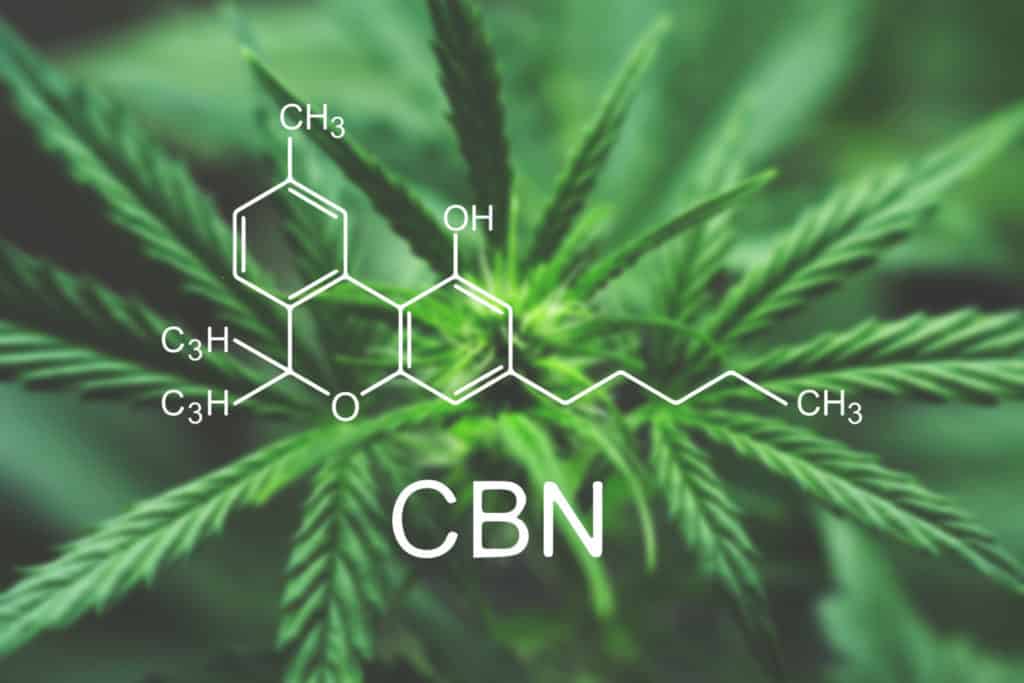

CBD has taken the wellness community by storm over the past few years. It’s in everything from skincare products to cookies. Some people won’t leave home without their CBD. It’s all over the place! It’s nearly inescapable! Everyone's talking about it. What is it? Here’s what you need to know about cannabidiol (CBD) and the potential benefits of CBD.
So what’s all the fuss about? What is CBD, and what does it do? How does it work with the body, and do you really need to incorporate it into your routine?
CBD is a naturally occurring, non-psychoactive compound found in the hemp plant that has been reported by many consumers to have a number of positive effects.
CBD stands for cannabidiol, which is a naturally occurring, non-psychoactive compound found in cannabis plants. It has been found to have a number of therapeutic effects and possible applications relating to health and wellness.
CBD is part of a family of compounds called cannabinoids. Cannabinoids are any substance that interacts with the endocannabinoid system regardless of origin or structure. The endocannabinoid system is a communication system with the brain and body that regulates many of the body’s key processes.

The endocannabinoid system (ECS) is a biological system, similar to the nervous system, that keeps many key processes in the body running smoothly and effectively. It relates to how your body controls mood, cognition, temperature, sleep, nerve function, pain and more. Essentially, the endocannabinoid system works to maintain homeostasis or balance in the body. For example, when the body experiences a certain amount of pain, the endo cannabinoid system might kick in to alleviate some of that pain and restore homeostasis.
The endocannabinoid system isn’t one specific part of your body. A huge number of receptors exist everywhere, from the surface of your skin to the immune cells in your intestines.
That’s why CBD and other cannabis-derived compounds can inspire such a broad array of effects and benefits. It can interact with almost every natural process within your body.
The endocannabinoid system involves three main parts:
Both endocannabinoids and phytocannabinoids play a key role in maintaining the body’s homeostasis by binding to cannabinoid receptors. The key difference between the two is where they’re produced. The body produces endocannabinoids “on demand” when it needs to restore homeostasis. Whereas phytocannabinoids, like CBD and THC (tetrahydrocannabinol), are produced by plants as a natural defense mechanism.
Phytocannabinoids can be found in many plants besides cannabis including, cacao, black pepper, and kava to name a few. They also seem to produce more overt therapeutic effects than endocannabinoids because they remain in the body longer as they are not broken down once homeostasis is restored.
In short, no. CBD can be part of marijuana but it is not the same as marijuana. As we mentioned above, CBD is a cannabinoid. Cannabinoids are compounds produced by certain plant species, with one of those species being cannabis. Marijuana is a common term for cannabis. That being said, majority of readily available CBD products, including those produced by BFF hemp, are formulated using industrial hemp.
Industrial hemp is a Cannabis sativa plant that is grown in accordance with federal law. The FDA recognizes the difference between industrial hemp and traditional products containing cannabis and regards industrial hemp products as dietary supplements.
The U.S. Food and Drug Administration has only approved one form as an active ingredient for drugs like Epidiolex, which is prescribed by healthcare providers to manage seizure disorders like severe forms of epilepsy. This type isn’t derived from the hemp plant.
Both hemp and marijuana are members of the Cannabaceae family, meaning they’re both cannabis. Legally, the difference between hemp and marijuana lies in their THC content. The 2014 Farm Bill, which legalized the production of hemp for research, legally defined hemp as cannabis that contains .3% THC or less by dry weight. So based on that legislation, marijuana is any form of cannabis that contains more than .3% THC by dry weight. Hemp is legal nationwide, while marijuana is not. This is why the majority of readily available CBD products are formulated using industrial hemp.
Additionally, hemp is grown for a number of purposes beyond its therapeutic qualities. For example, hemp can be used to create textiles, building materials, and bio fuel among many other uses. Marijuana on the other hand is typically only used for its medicinal or recreational affects.

CBD and THC are very similar molecules. However, they have vastly different effects. While THC binds to cannabinoid receptors, CBD simply interacts with them. However, CBD does not produce the “high” side effect that is commonly associated with THC. CBD and THC also differ in terms of legality. Federally, THC is illegal but some states have legalized the cultivation and sale of marijuana for medical or recreational purposes. The 2018 Farm Bill removed hemp (cannabis with less than .3% THC by dry weight) from the controlled substances list, making hemp legal to cultivate and effectively legalized hemp derived CBD. That being said, the final cbd product, whether it be a cbd gummy or tincture, must have less than this amount of THC to remain legal.
Research surrounding cannabinoids and how exactly they interact with our bodies is really just beginning. We still have a lot more to learn, like how exactly CBD interacts with cannabinoid receptors. Researchers have found that THC binds to both the CB1 and CB2 receptors, but CBD doesn’t function in the same way. Some scientists believe CBD actually blocks the breakdown of endocannabinoids, and as a result increases their benefits. Others believe it binds to unoccupied CB1 and CB2 receptors. Another theory is that there is another receptor that scientists have yet to discover.
Regardless of the specific way CBD works with our ECS, researchers and consumers alike have reported numerous positive effects related to this relationship.
CBD can be used in many ways. It can be used as an active ingredient in topical products, like soothing creams and skincare serums. CBD in topical products only works in the immediate area where it’s been applied. It won’t produce the same effects as CBD you ingest.
Things like CBD oil, CBD edibles like gummies, and CBD vape products enter your body and reach your endocannabinoid system. Vapes work the fastest because they’re inhaled directly into your lungs and immediately circulated throughout your body.
CBD oil tincture is the second fastest to get to work, especially when held under your tongue. The soft tissue will absorb the CBD particles and send them into your bloodstream. Gummies are a little slower to work because your body needs to digest them first.
No matter how you use CBD, you’ll likely begin to experience some of the effects of cannabidiol within an hour. The effects become more pronounced with consistent use. You’ll most likely notice support for your overall wellness after using CBD daily for about 30 days. Keep using CBD daily to maintain these benefits.
CBD is a plant-derived compound that naturally works with many systems of the body to enhance overall wellness. It’s legal, generally recognized as safe to use, and it won’t produce unwanted psychoactive and adverse effects. Add CBD to your daily routine if you feel you’d benefit!
Sources:
The Endocannabinoid System, Our Universal Regulator | Journal of Young Investigators
Farm Bill Primer: What Is the Farm Bill? | Congressional Research Service Reports
FDA Regulation of Cannabis and Cannabis-Derived Products, Including Cannabidiol (CBD) | FDA